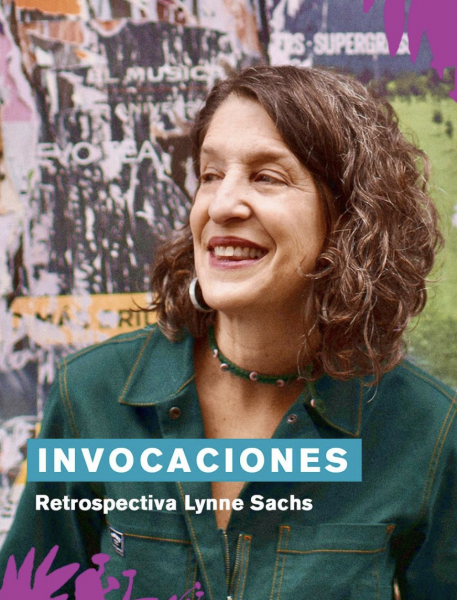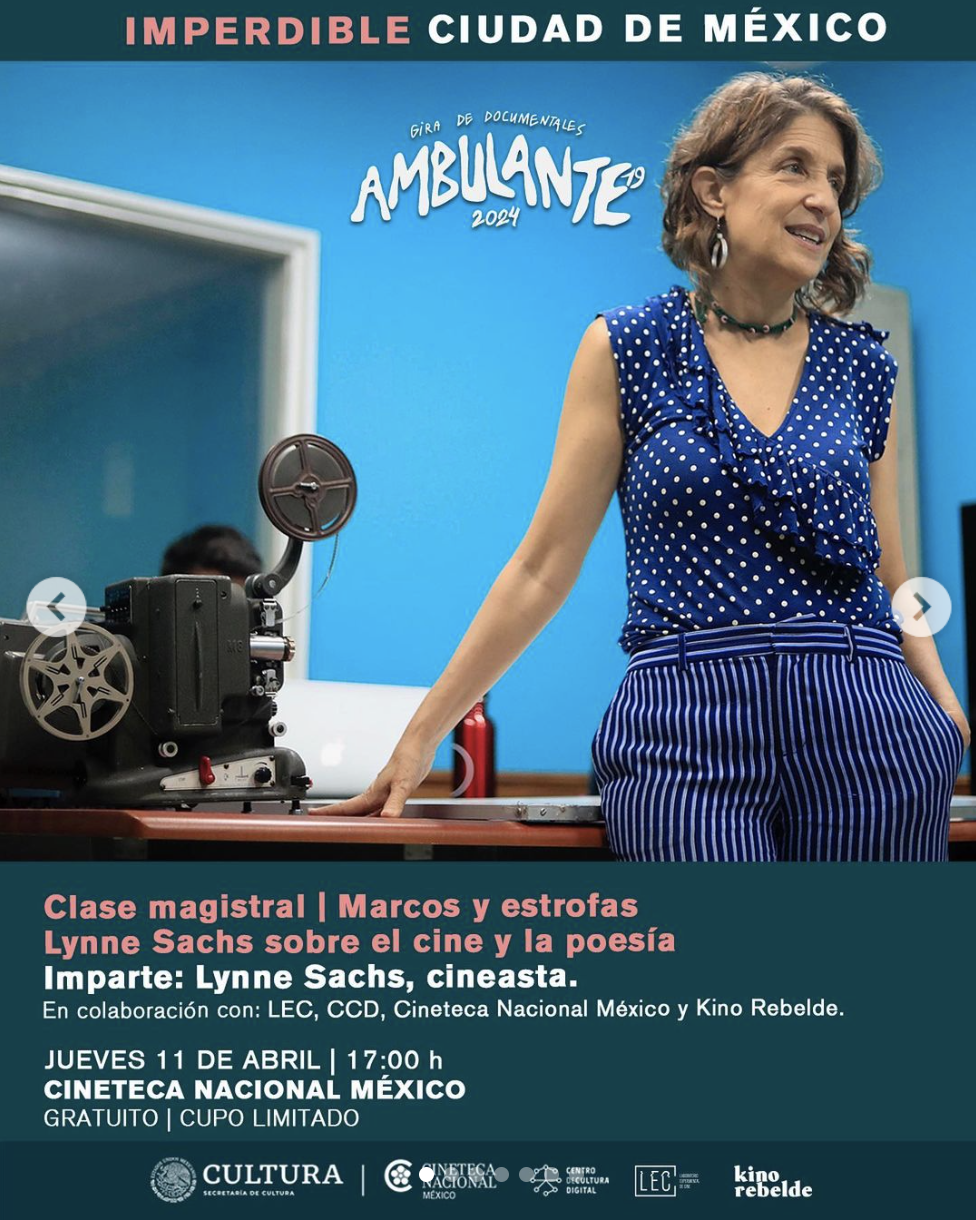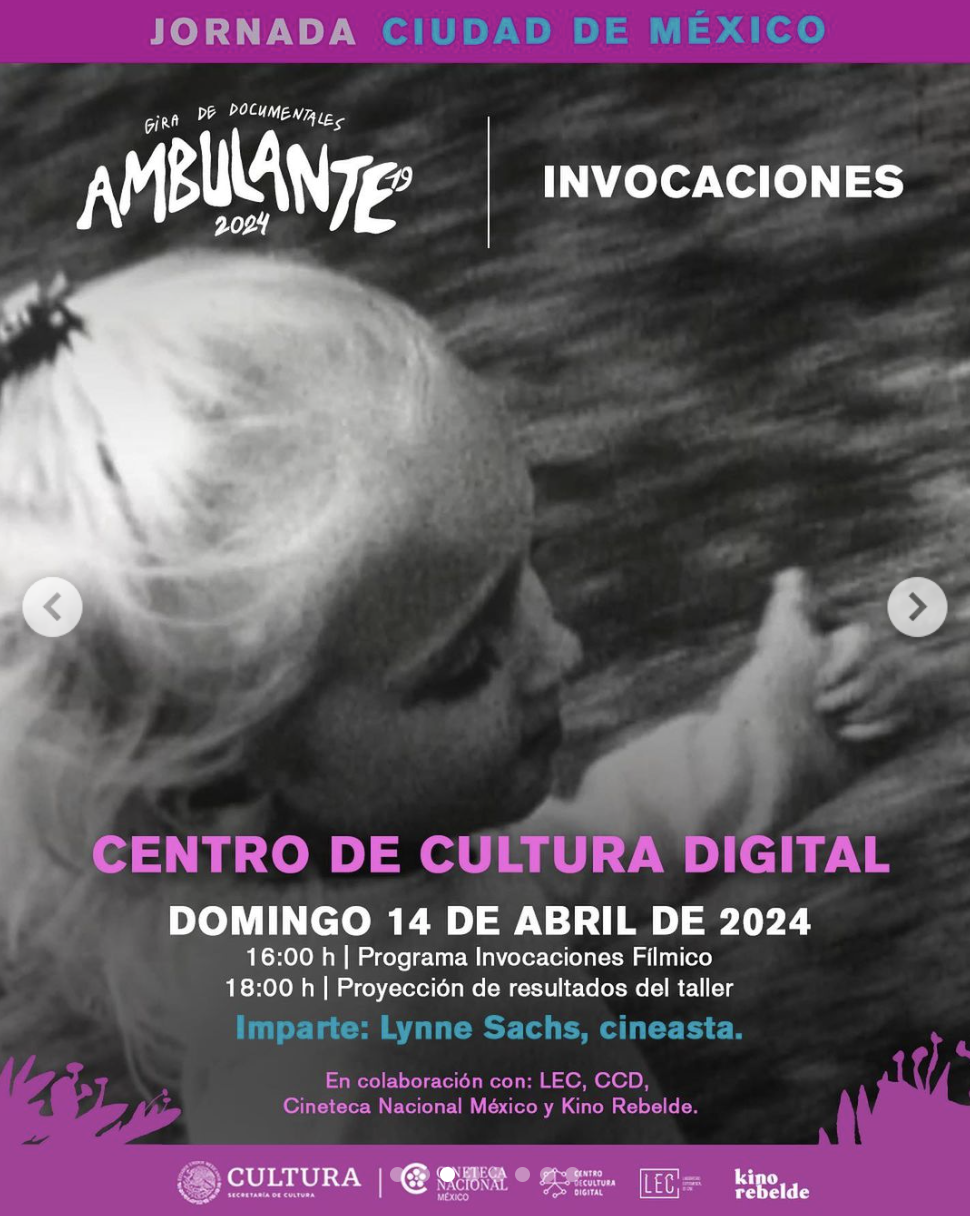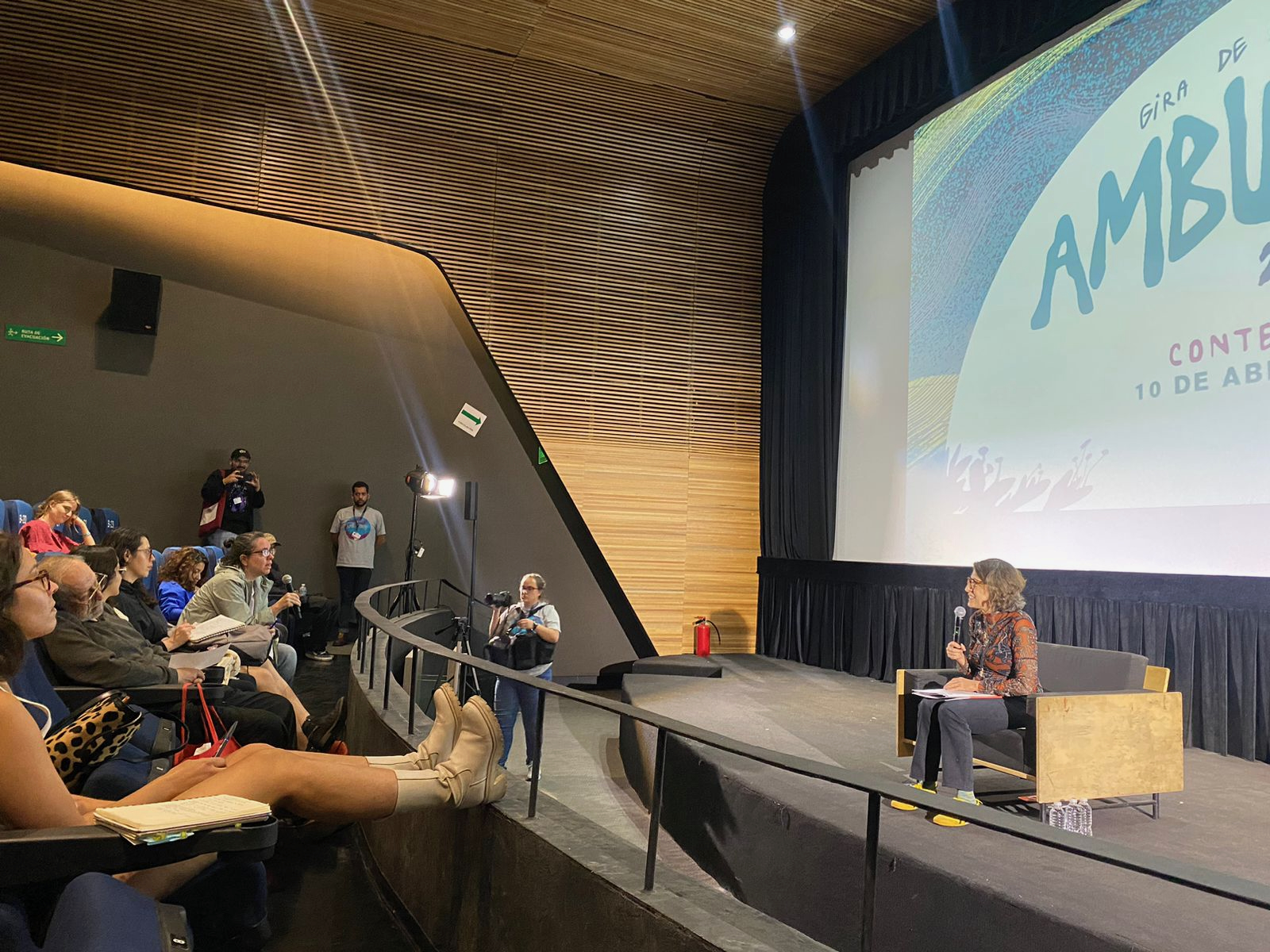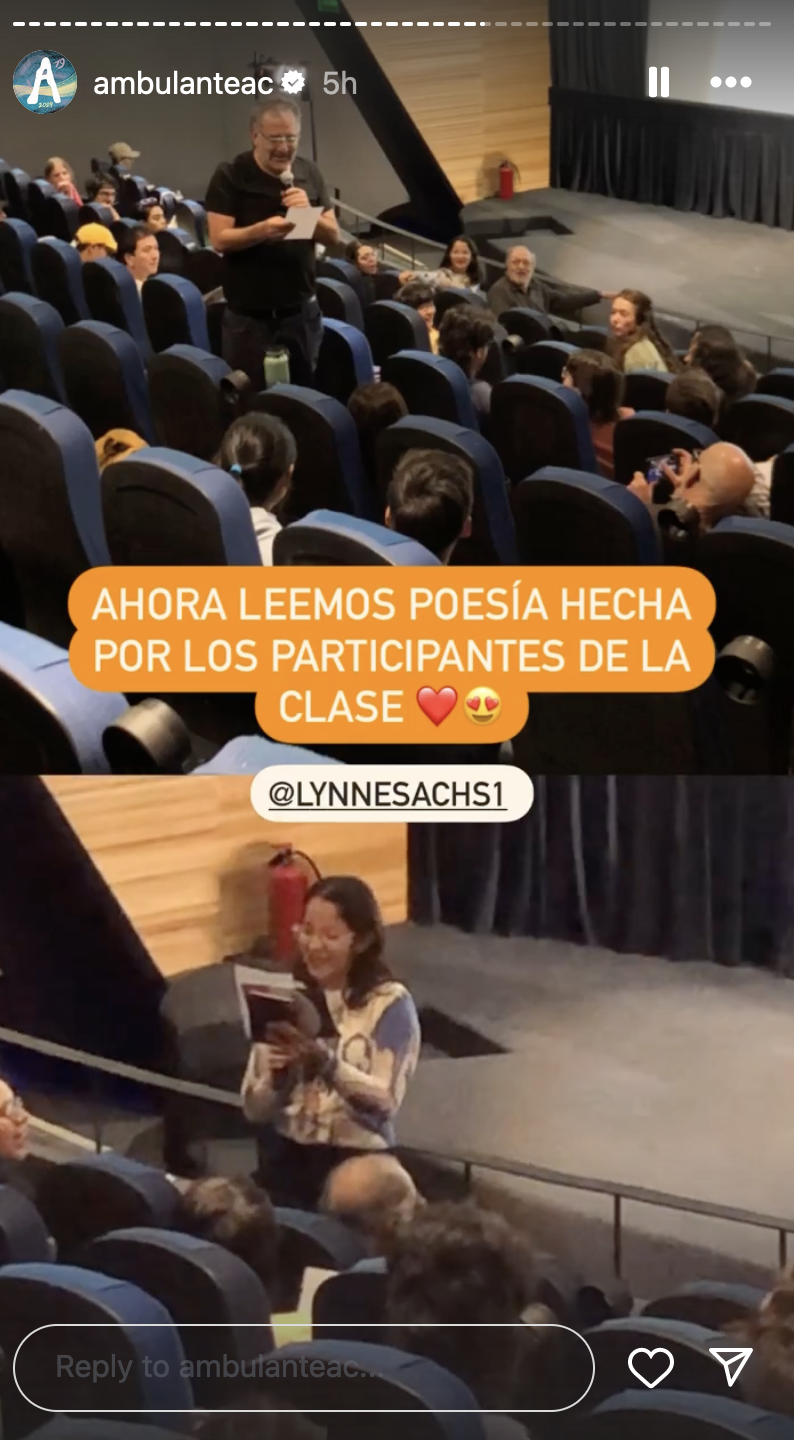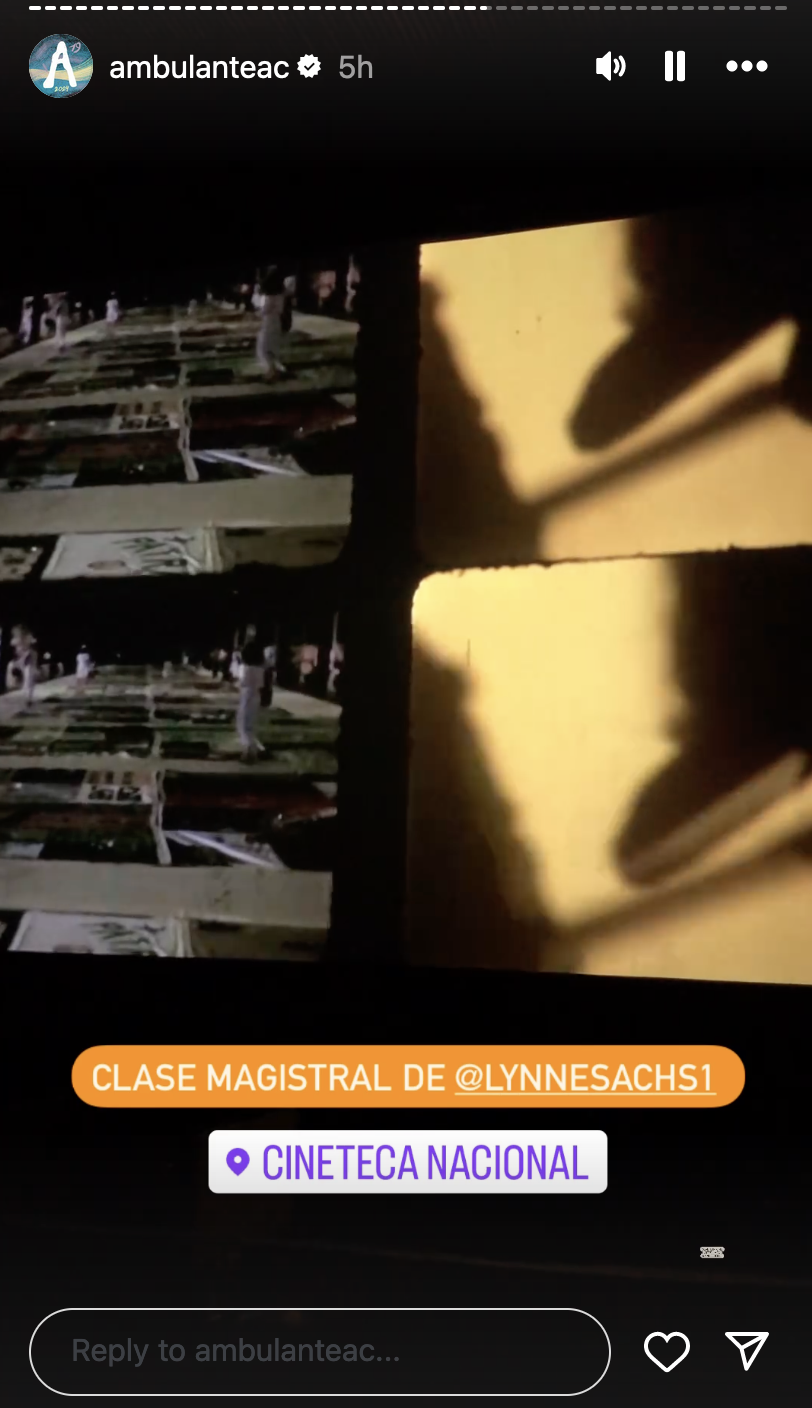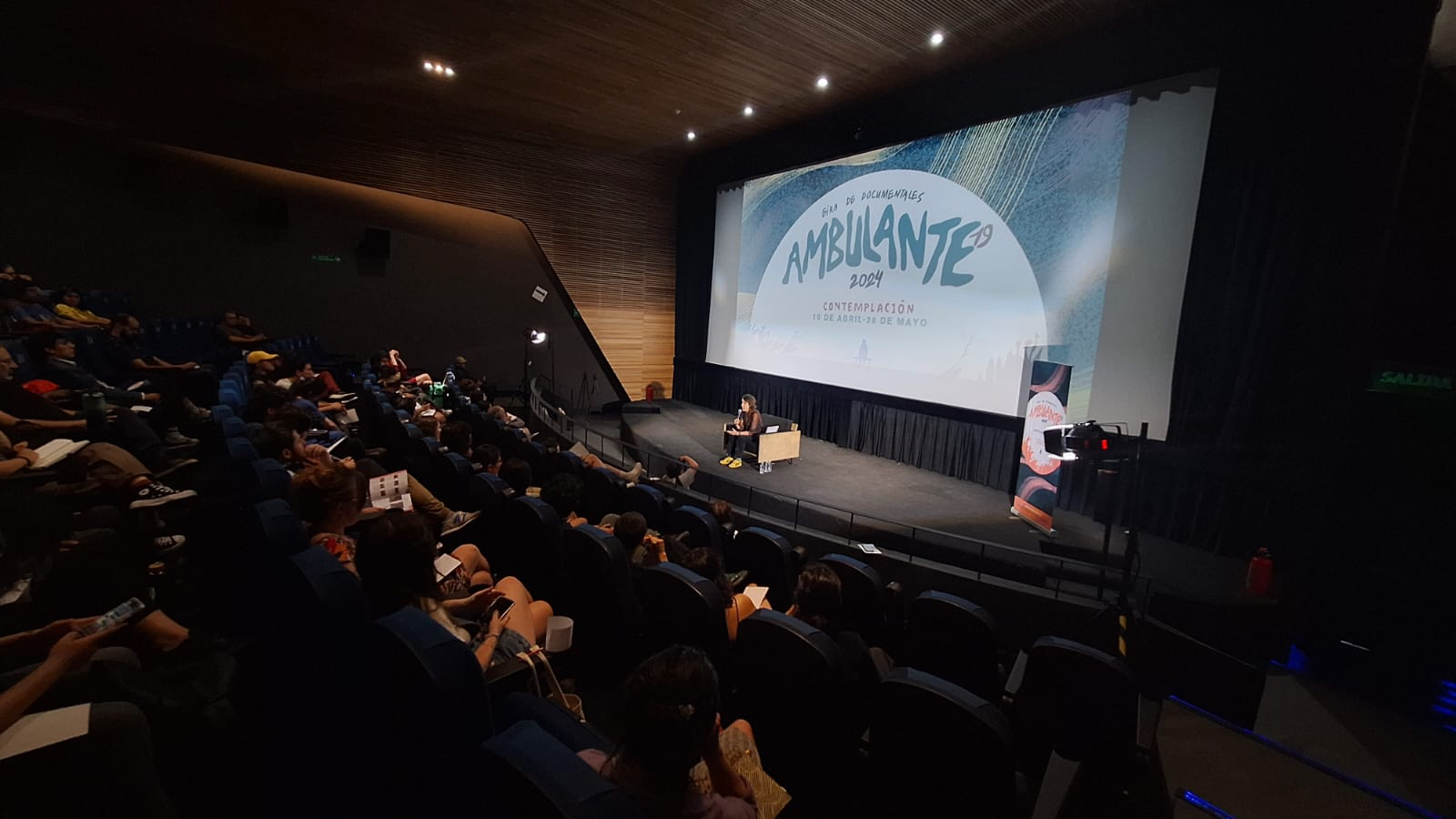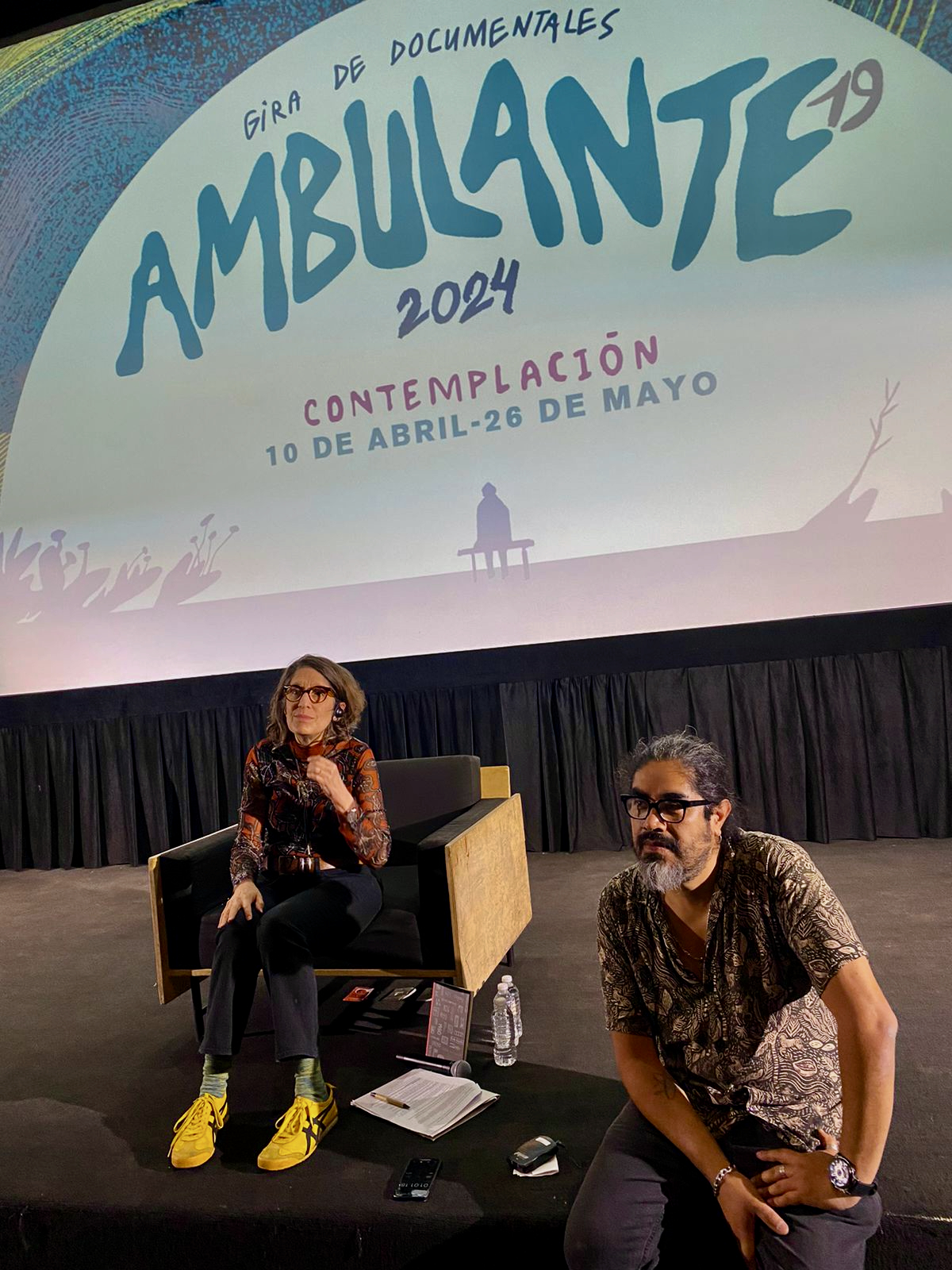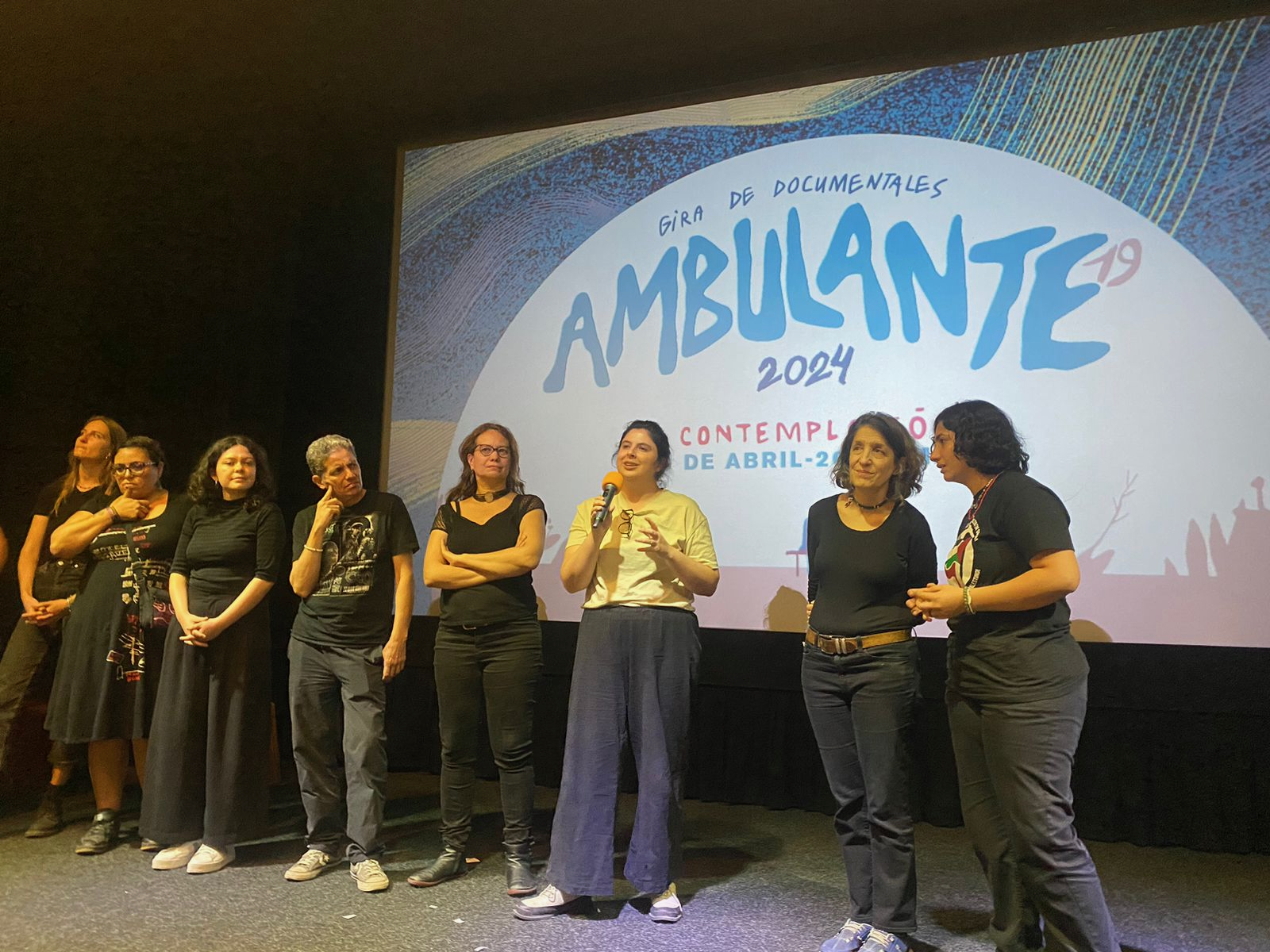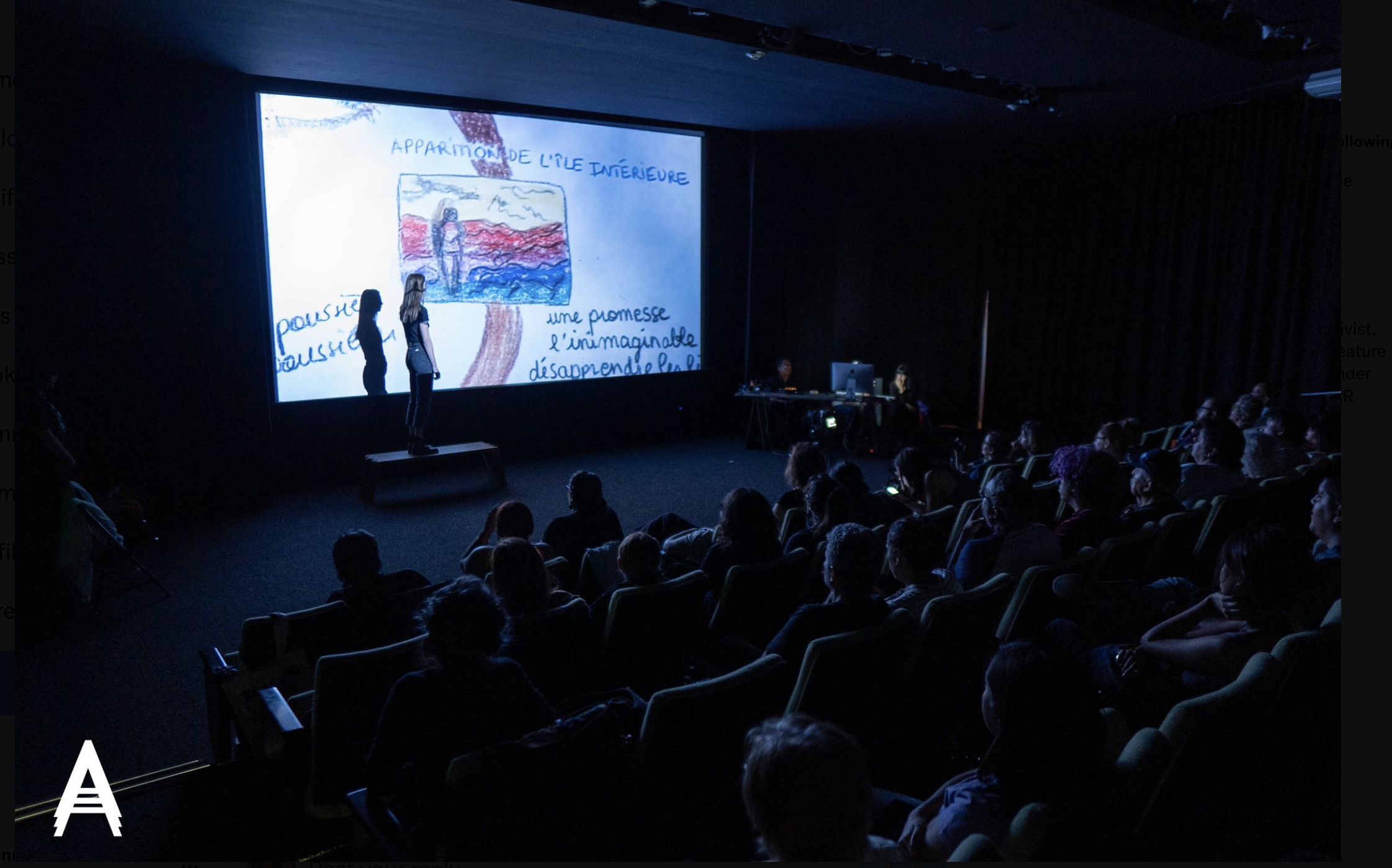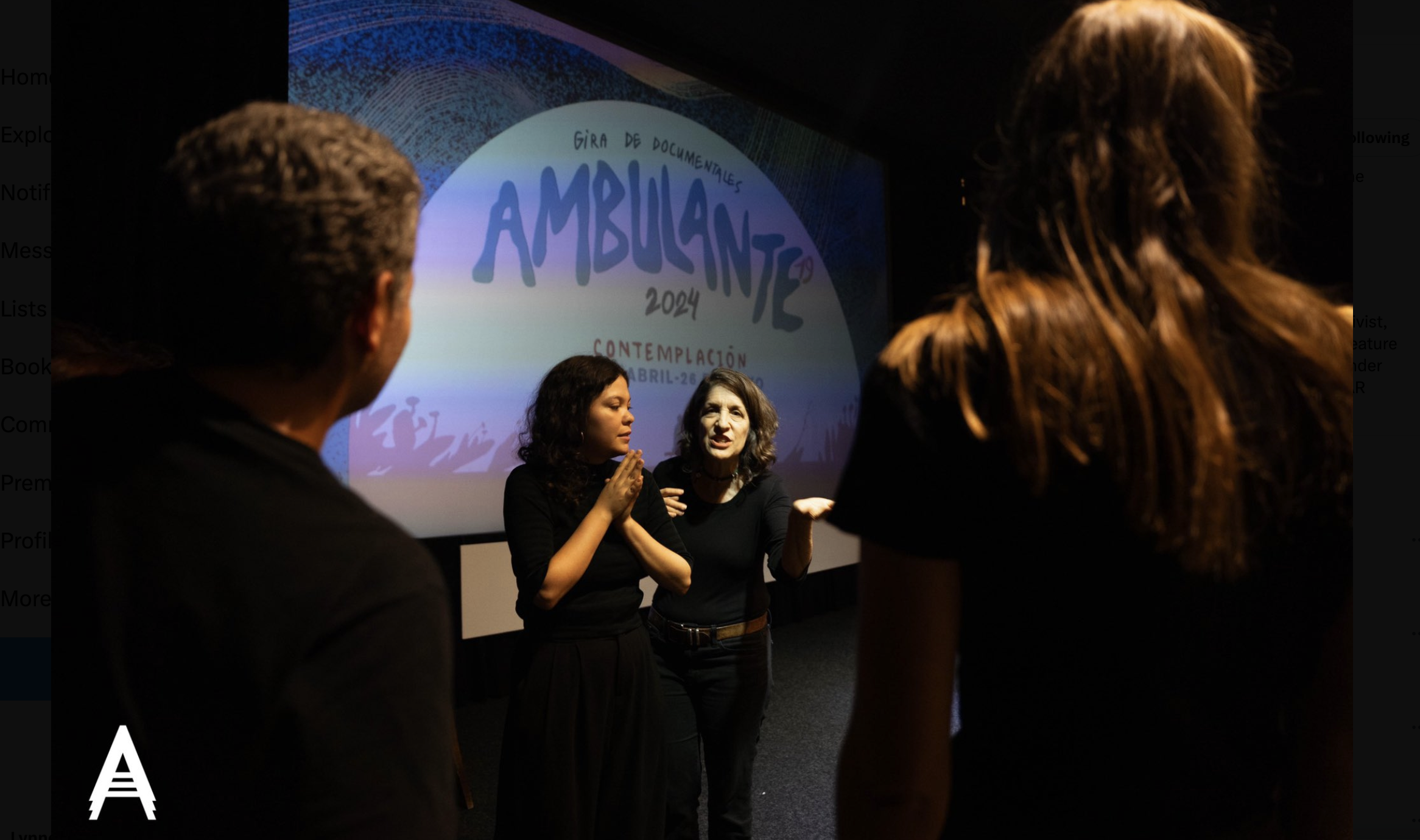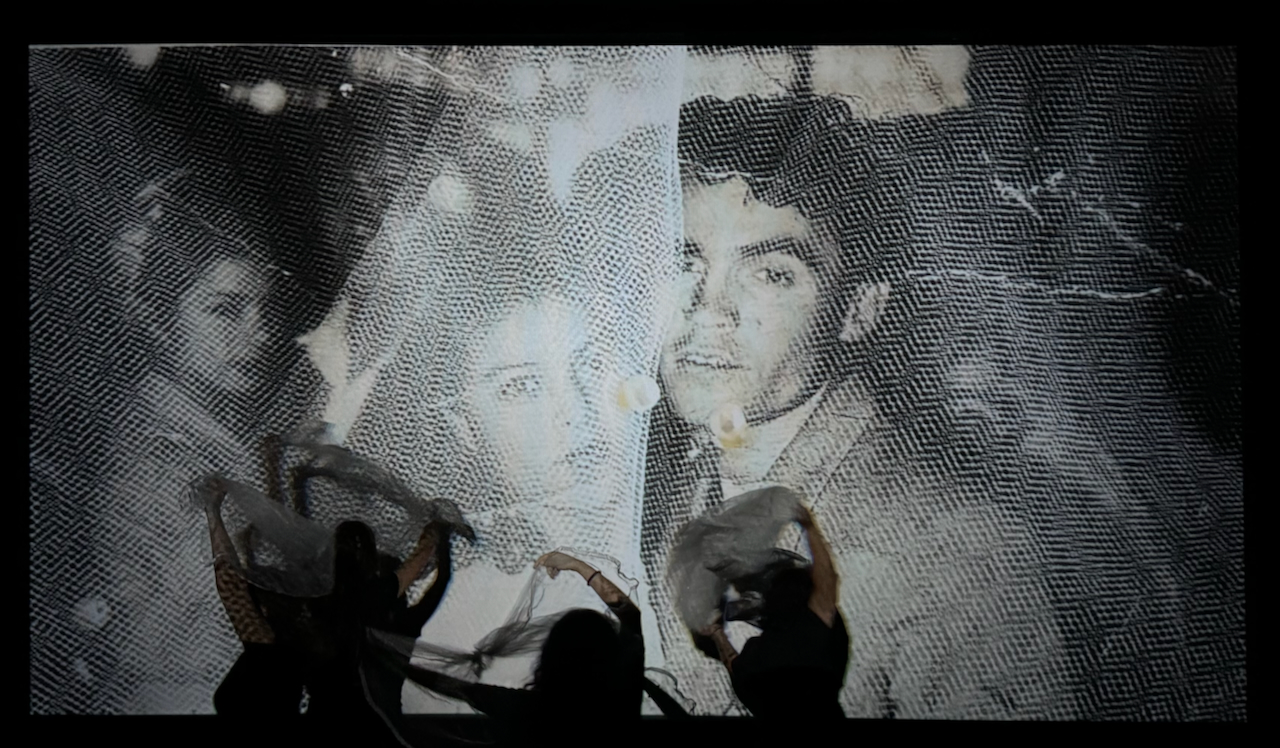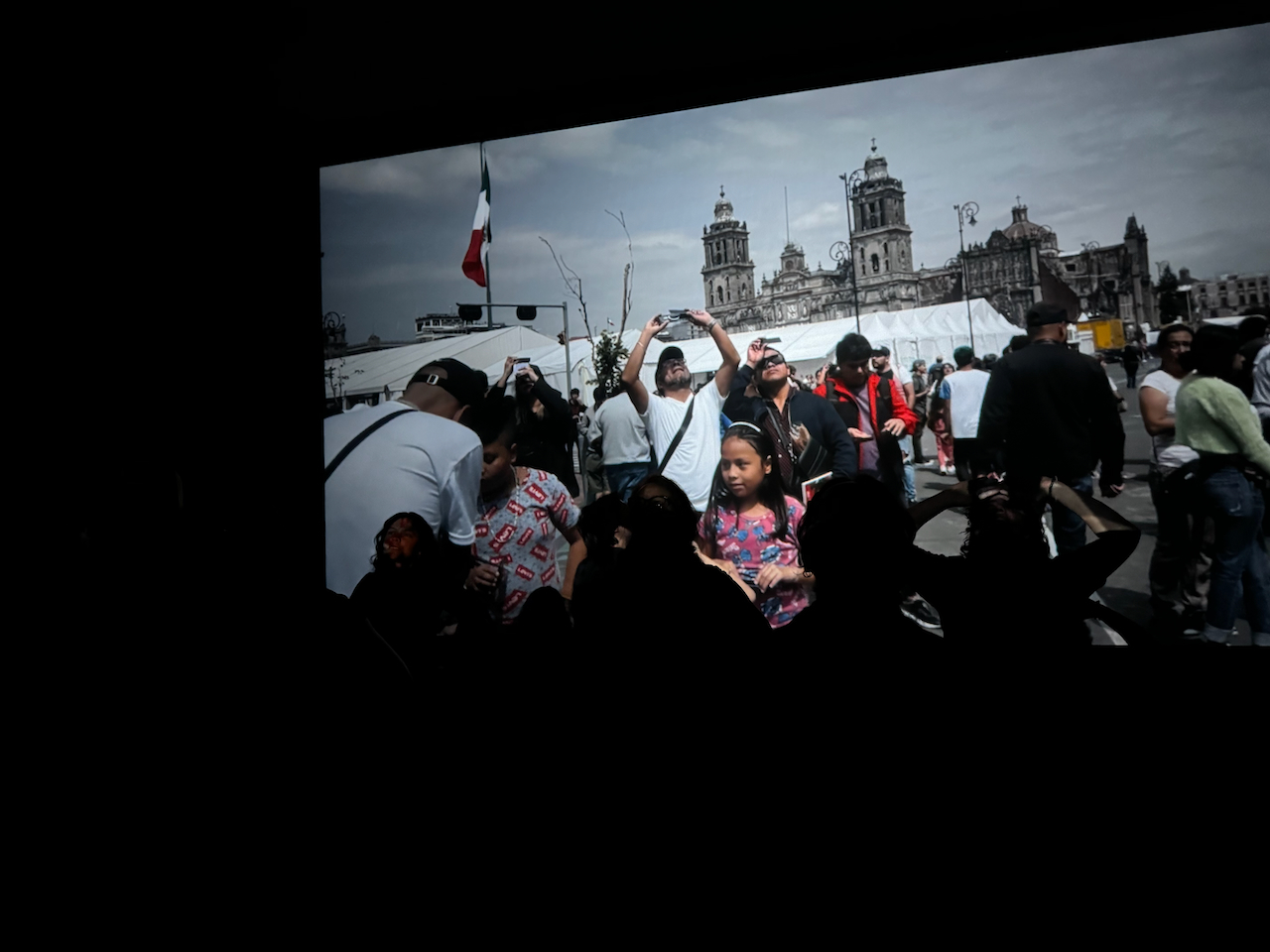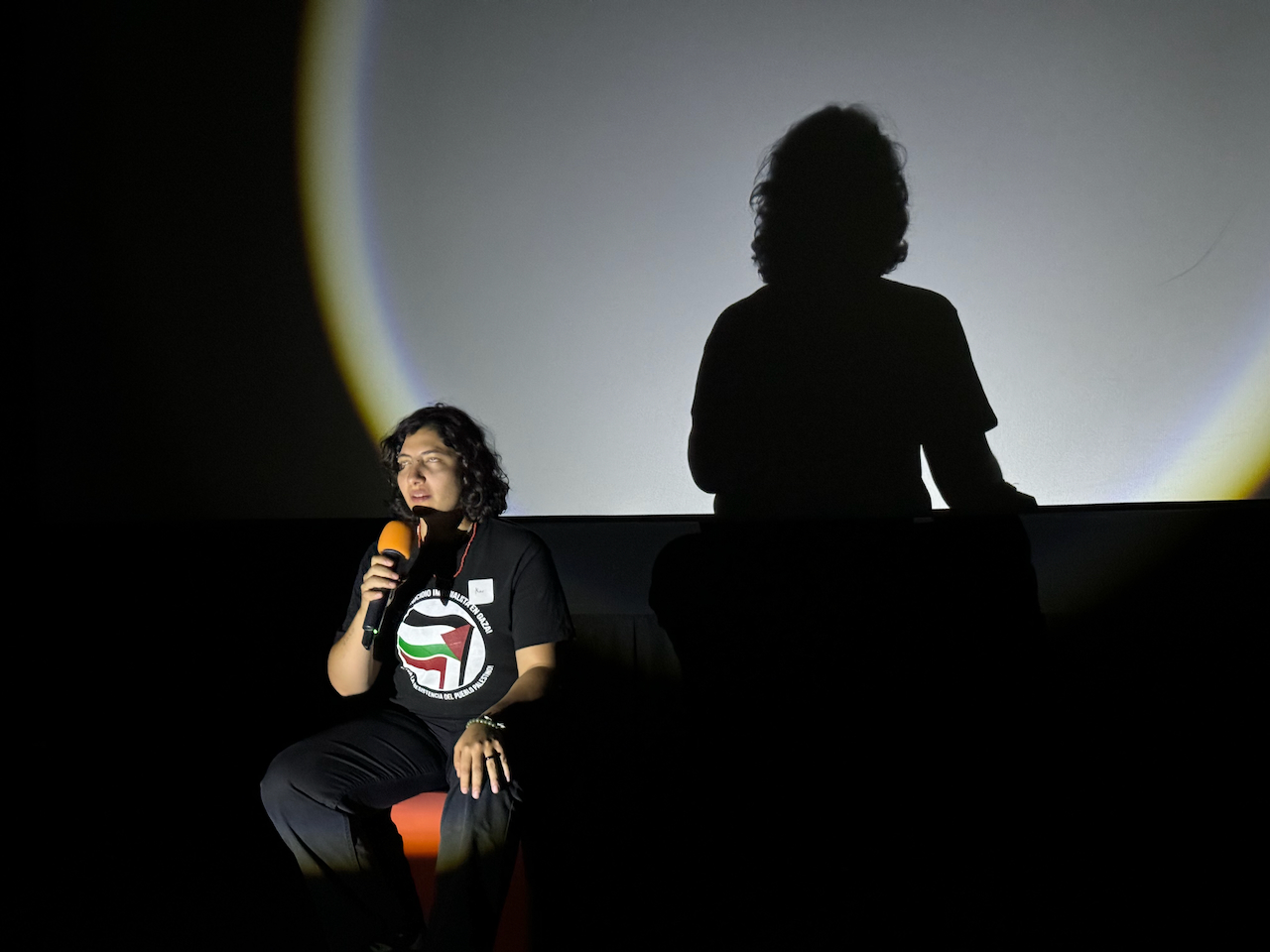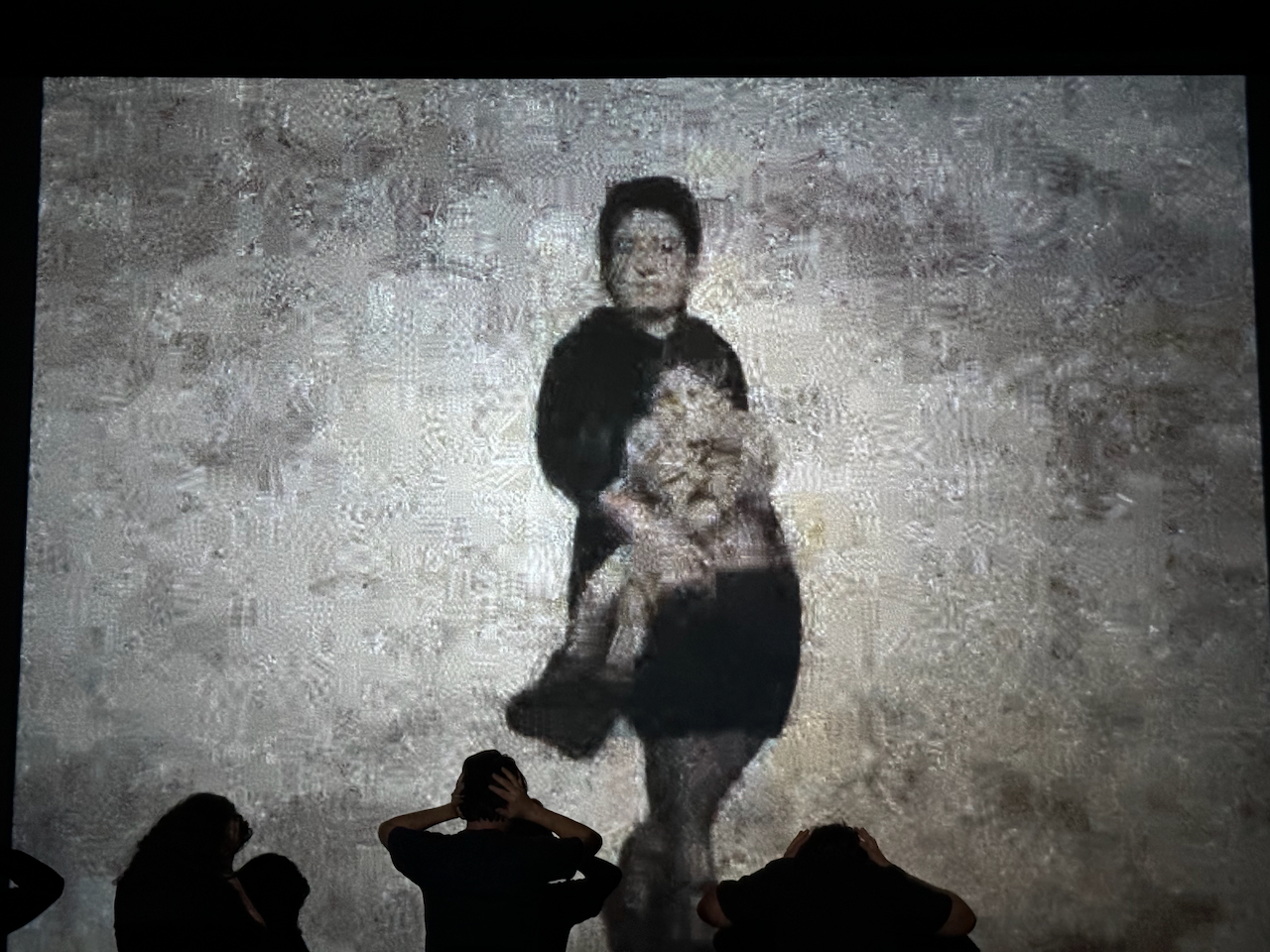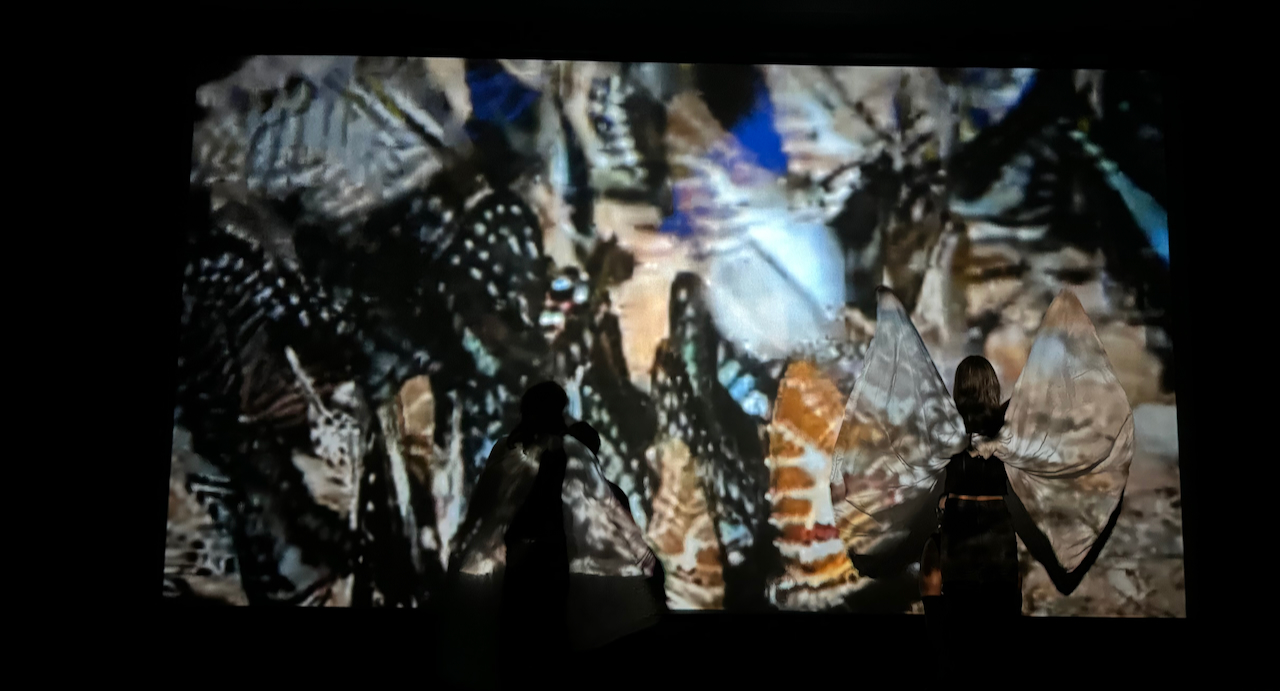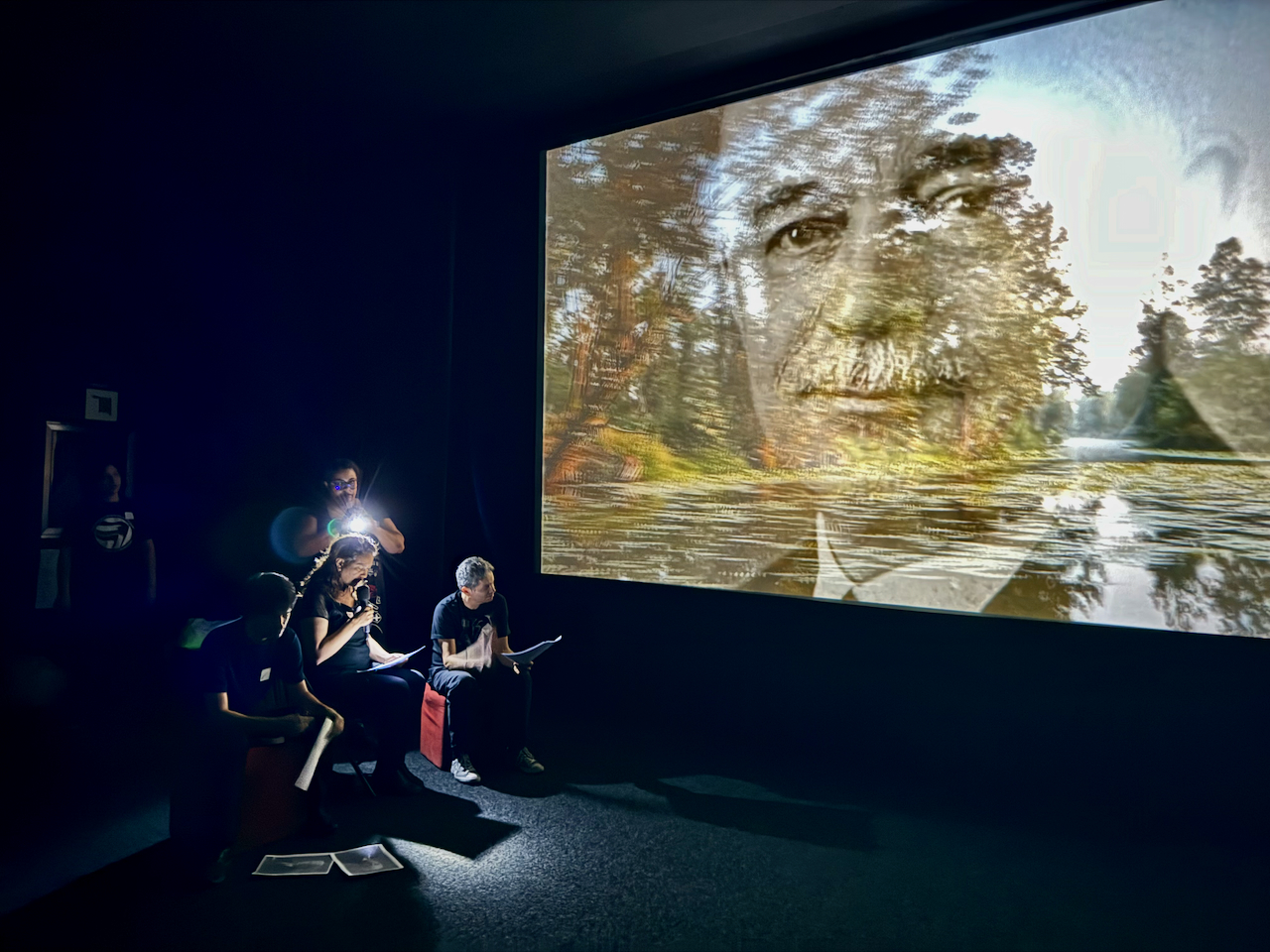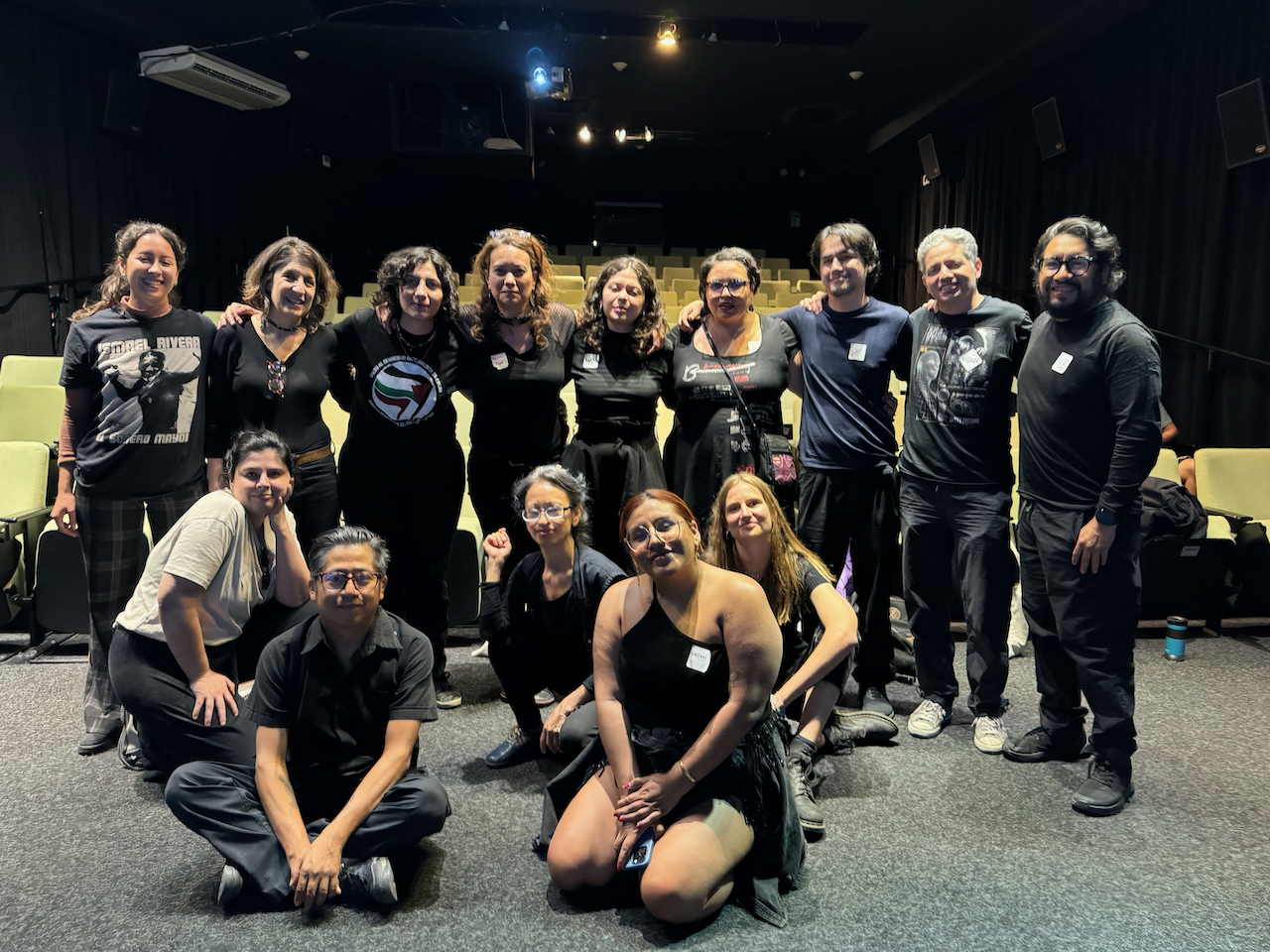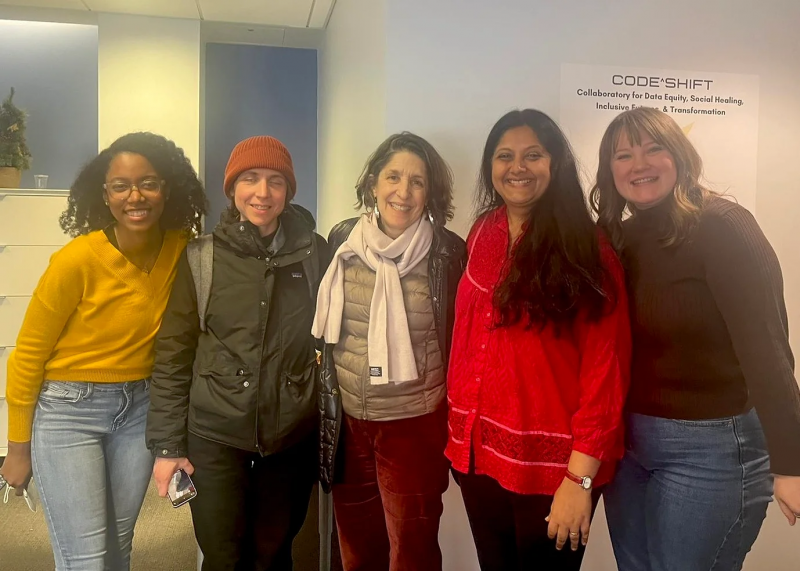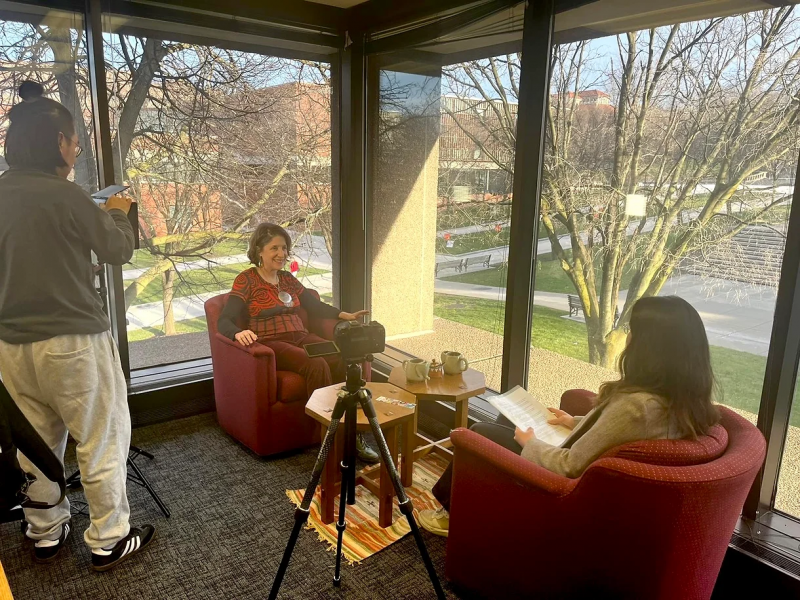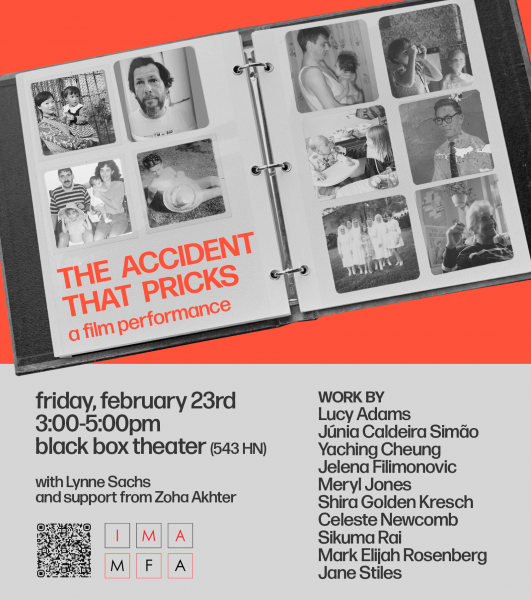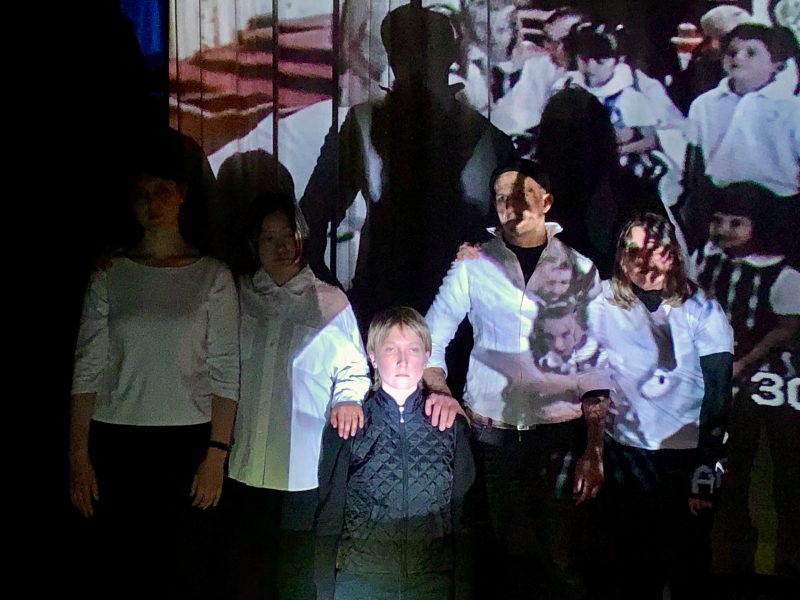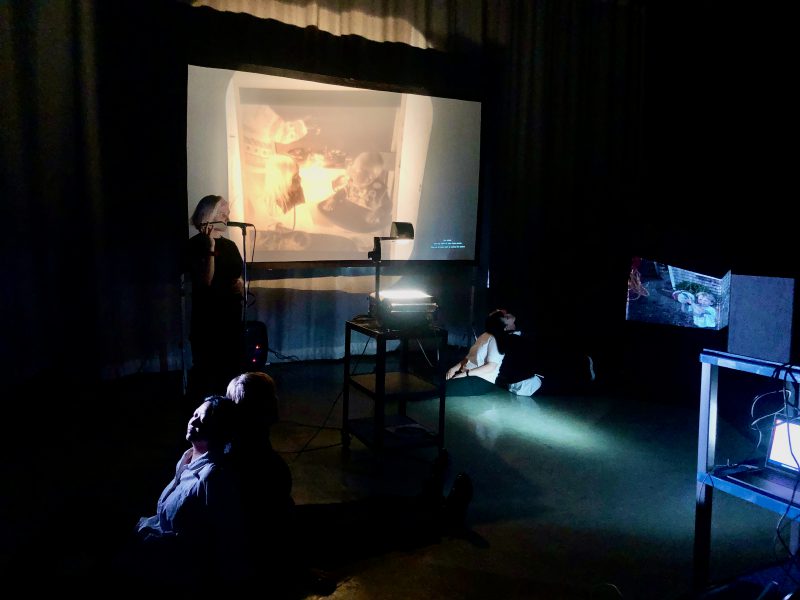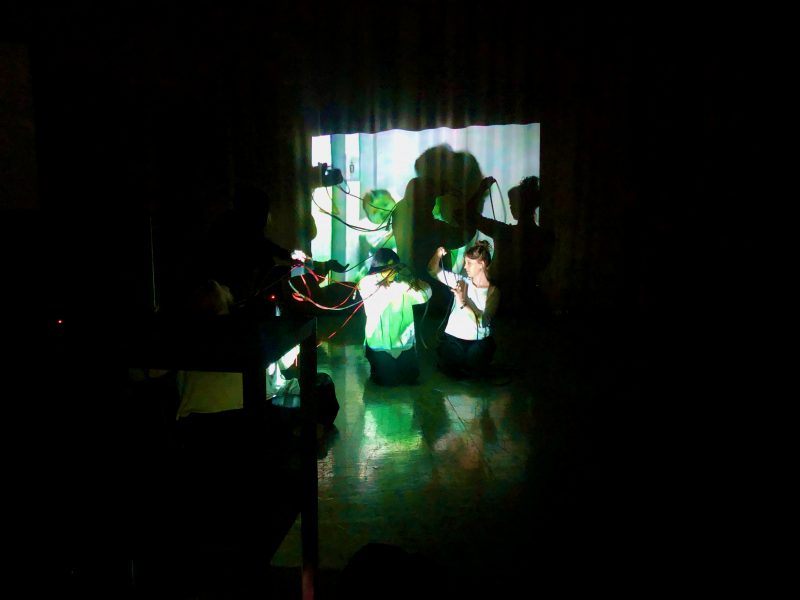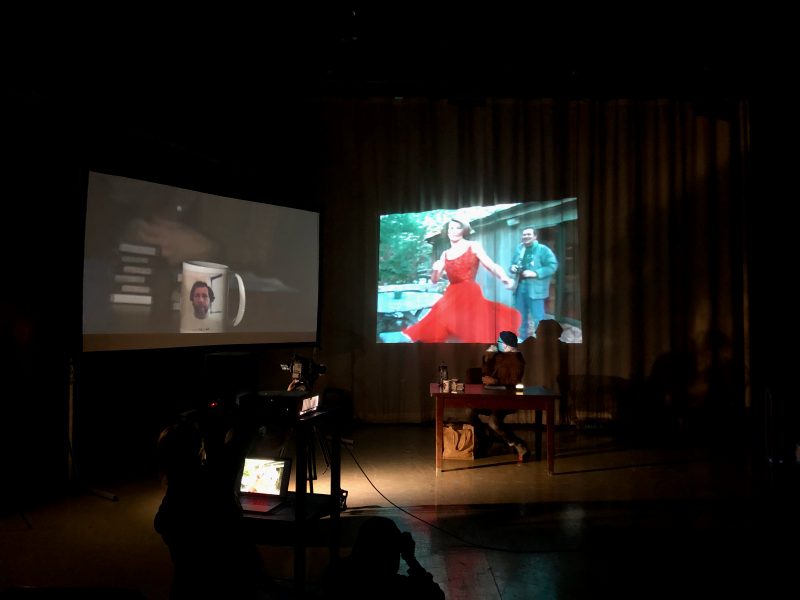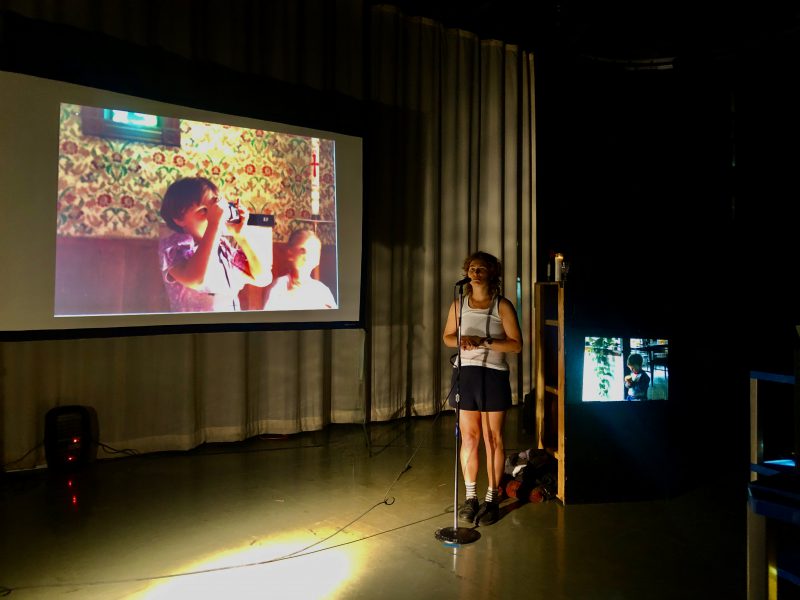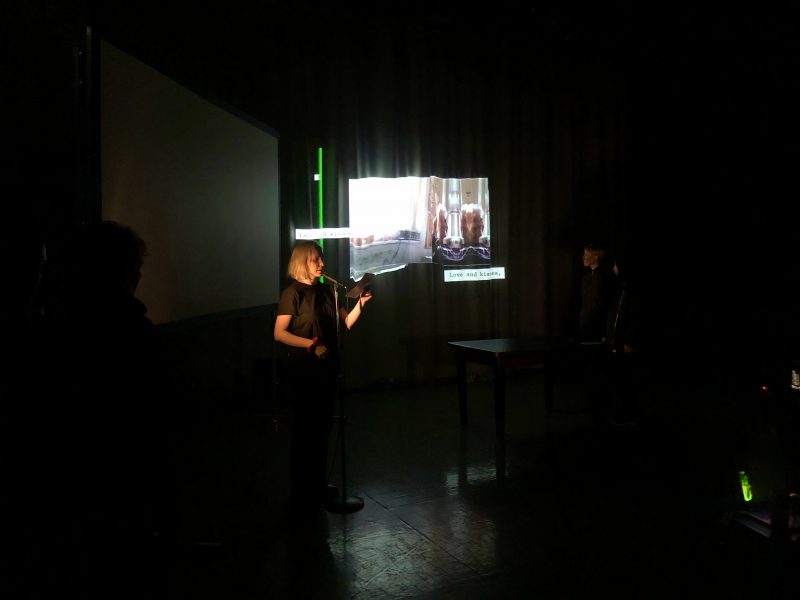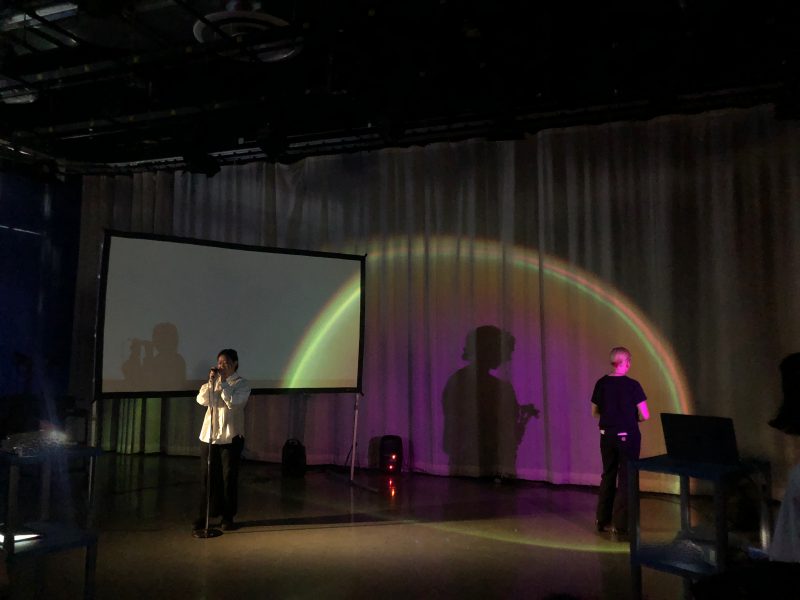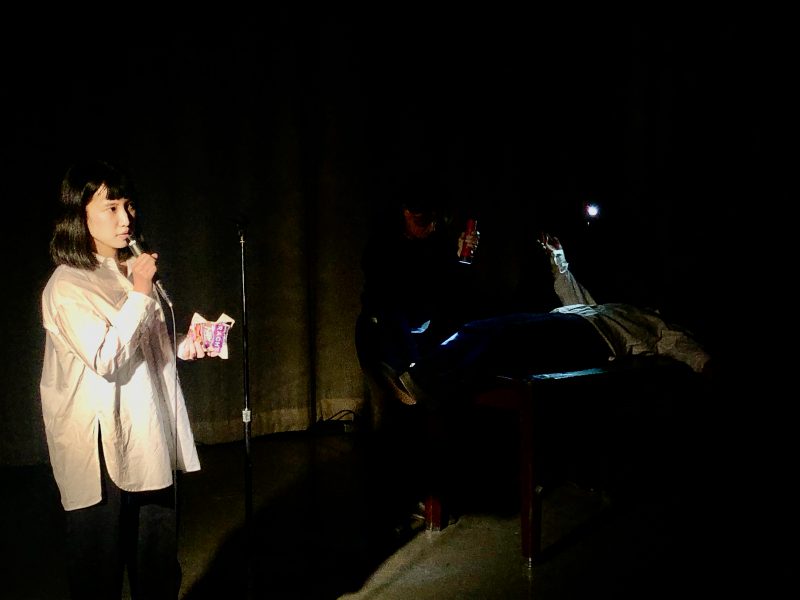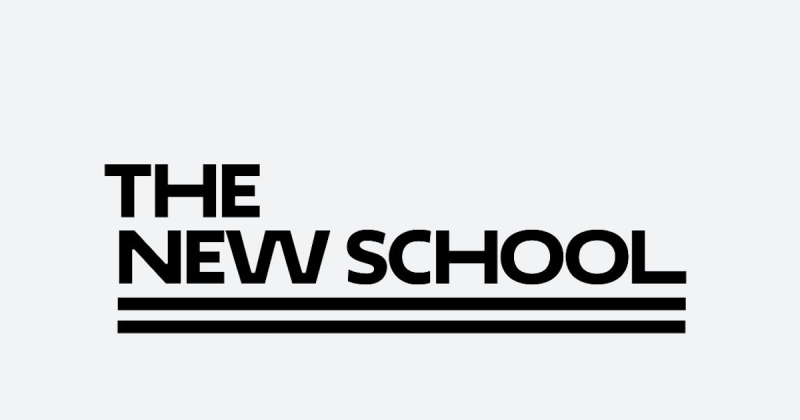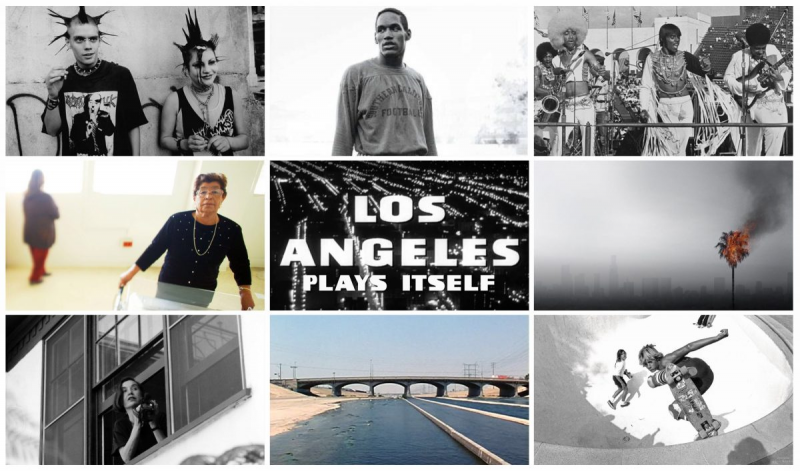
Sao Paulo, Brazil
August 6-10, 2006
“I Am Not A War Photographer” (illustrated talk and screening, 2006-2007) Exploring my decade-long artistic rather than physical immersion in war. From Vietnam to Bosnia to WWII Occupied Rome to the Middle East today, my experimental documentary films push the borders between genres, discourses, radicalized identities, psychic states and nations through the intertwining of abstract and reality based imagery. In my talk, I introduce precise visual strategies I have discovered in working with these fraught and divisive themes, often opting for a painterly rather than a photographic articulation of conflict.
Mesa Temática:
Viewing the Absent – Remarks On Forensic Animation Film
Integrantes:
Patrik Sjoberg / Karlstad University, Noruega
Kjetil Jakobsen / University of Bergen, Noruega
Lynne Sachs / New York Univesrsity, EUA
Coordenador:
Patrik Sjoberg
RESUMOS:
Viewing the Absent – Remarks On Forensic Animation Film
Patrick Sjoberg
This paper address forensic animation films: the animated/digital films introduced into
the courtroom as re-enactments of an event: a crime, an accident, or a possible scenario.
These films are often based on photographs taken at the scene but not always. The films can
also be made from witness statements and speculations made by various expert witnesses.
Although these animated films have, to a lesser extent, been a feature in courtrooms and legal
procedures for well more than a decade, the opportunities now offered by CGI (computer
generated imagery) have given these films a whole new dynamic. Although they use a similar
technology as the producers of the latest computer games and feature film productions, they
rely heavily on the conventions established by the documentary film and/or actuality footage.
My paper discusses the development of these films, their aesthetics and the theoretical
implications of these films; that is, as evidence in a courtroom and as films referring to a
“real”.
Documenting globalization. A reflection on History, Storytelling and Film
Kjetil Jakobsen
Ever since Immanuel Kant in 1784 pronounced his age to be that of The Enlightenment (“Wir sind die Aufklärung” ), man has taken upon himself to give name to the times in which he live and to conceptualize these as a new form of experience. A generation after Kant, Friedrich Schegel proclaimed his epoch to be that of “the romantics”. In nineteenth century Paris Baudelaire and Rimbaud proclaimed “modernity” and set out to create an artistic language that was peculiarly “modern”. It has always been the ambition of documentary film to document its times. The nature of the contemporary is by definition
contested territory. Yet – like it or not – there seems to be some sort of consent that we are currently living in the age of globalization. The ethical imperatives of documenting globalization are overwhelming, considering the human suffering involved in these processes. Yet documenting globalization is a different issue from that of documenting, say the Great Depression or the Cold War. Firstly the problem of abstraction is pushed to extremes. How does one visualize such huge socio-structural transformations? Of course, aspects of globalization like mass tourism, illegal immigration, the blurring of cultural borders, the politics of global terrorism, and the exploitiveness of unfettered capitalism offer themselves to the documentary eye. But assuming that these things are interlinked, how does one synthesize “the age of globalization”?
Complicating matters further, a key aspect of present day globalization is precisely
that discourses of power are ever further removed from the world of human face to face
interaction and from the modes of representation that stem therefrom. The functioning of say
the world financial markets is beyond the scope of human perception. The same may be true
even of the global media (The obsession with dinosaurs in synthetic computer imaginary
seems a way of hinting uncannily that we are the dinosaurs, that is that ordinary non-
digitalized human experience is heading for extinction and subsequent synthetic recreation!)
In the globalized world, even modernity’s conventional system for covering up – and bridging the gap between power structures and everyday reality, that of introducing “representational
democracy” is lacking. There is no such representation on a world level. How does one
present the very “unrealness” of the present, in a realistic manner? Part of the answer must, I
believe, lie in an attentiveness to the “subjective”, that is to the new modes of perception
involved in globalization.
Imagery contrasting the abstract or virtual with real, human experience easily leads to
luddism. There is a self-reflective point here. The documentary itself contributes to a virtual
space of global civil society, a space of re-mediation.
I will discuss not only “conventional” documentaries like Hubert Sauper’s Darwin’s
nightmare but also mockumentaries, docudramas and art movies that explore that borders
between documentary and fiction while reflecting on globalization: Johan Grimonprez dial H-
I-S-T-0-R-Y , Chantal Ackermans From the other side, Amar Kanwars A Season outside,
among others. From the point of view of the historian of ideas it is obvious that the borderline
between “fictional” and factual discourse can never be stable, neither in the short, nor the long
run. In order to main its effet du réel, art is obliged always to cannibalize its environment,
pushing its borders ever further into the discourses of the real.
I am Not a War Photographer
Lynne Sachs
”I Am Not a War Photographer” is a cinematic presentation and talk exploring my
decade-long artistic rather than physical immersion in war. From Vietnam to Bosnia to
WWII Occupied Rome to the Middle East today, my experimental documentary films push
the borders between genres, discourses, radicalized identities, psychic states and nations
through the intertwining of abstract and reality based imagery. In my talk, I will introduce
precise visual strategies I have discovered in working with these fraught and divisive themes.
Often opting for a painterly rather than a photographic articulation of conflict, I struggle with
each new project to find a precise language of images and sounds with which to discuss these
volatile moments in history, exposing what I see as the limits of a conventional, documentary
representation of both the past and the present. Infusions of colored ”brush strokes” catapult a
viewer into contemporary Vietnam. Floating drinking glasses moving across a Muslim
cemetery in Sarajevo evoke a wartime without water. Pulsing, geometric mattes suspended in
cinematic space block news footage of a bombing in Tel Aviv. These and many other
examples form my visual approach to looking at trauma, painful memory, and conflict. By
using abstraction we are not avoiding graphic realism but rather unpeeling the outer, more familiar layer, hoping to reveal something new about perception and engagement in cinema.
NOTES FROM LECTURE
“Which Way is East: Notebooks from Vietnam” (1994)
- Two Views of the horizon line/literally the Pacific Ocean and a time line; how is
history registered from American and Vietnamese perspective? - Childhood as preparation, Walter Cronkite, War movies that were extremely
graphic, no such thing as a G rated war movie - Shot w/ 16mm Bolex with 28 sec. limit; no interviews; no sync sound; heightened
sensitivity to light and sound (discrete sensory experiences); no zoom lens/only
primes as this puts a discipline on my relationship to what I am shooting, my
body must move; camera like a paintbrush - Looking for the essence of a history, confidence in my love of the real
- ABSTRACTION: news report meditation matched with streaky brush strokes;
tunnels with white streaks - Books & Research through Texts: Dispatches by Michael Herr; When Heaven
and Earth Changed Places by Le Ly Hayslip; “Ear Before Eye” article and
Framer Framed by Trinh T.Minh-ha; Vietnamese parables ( and later the Bible)
give me the chance to enter an internal, mental space that provides a better
understanding of cultures, values, human/animal position in the larger world;
*James Clifford’s “Notes on Travel and Theory” (History of Consciousness
Program at UC Santa Cruz) : - a) “Every center or home is someone else’s periphery or diaspora.” Or
“Every periphery is someone else’s home.” I found this also to be true of
mythic visits to Israel by Jews, this claim, this attachment to someone
else’s everyday life; Clifford was also interested in who was traveling –
nomads, refugees, immigrants, tourists, explorers – we all have
experiences of awakening, and new understandings of what is familiar and
exotic. - b) “’A place on the map is also a place in history’” he quotes Adrienne
Rich; I wanted to be neither a tourist nor an explorer but rather a traveler
(a mind working in history); I wanted to visit our shared historical sites of
war but to experience something beyond this, more present, and more personal
“Investigation of a Flame” (2001)
- Same time period, opposite side of the horizon
- Backyard field work, gives me another kind of license and trust
- Intensive investigation; research is vital; confidence that this was important
excavation; finding the critical buried treasure that becomes a hallowed
connection w/the past — the original 16mm footage of the action - Uses traditional interviews which I integrate with joy and ambivalence
- a) eye to eye conversations with participants; no eyeline off camera models, I
quote National Geographic TV series producer who asks “Where will they look?
At you?”; the camera is EYE/I and looks out the window in reverie during John
Hogan’s section about children in a bus - b) no tripods, push engagement
- c) influenced by Trinh Minh-Ha’s staged, off center interviews in “Surname Viet:
Given Name Nam” - For whom was I making this film? Where were my obligations as a politically
conscious person? As an activist? - Began film prior to 2001; prior to 9/11, it was then “purely a historical exploration,
even nostalgia” some people told me - Obtained archival footage of action; would I treat it with reverence or
irreverence?; where were my limitations artistically - Both Philip and Daniel Berrigan completely supportive of an artist’s interpretation
of this political performance; it was the people with strict political agendas who
presented obstacles - Warsite as theater to the world: Hanoi….Catonsville (middle
America)….Sarajevo, Bosnina….. Tel Aviv, Israel …. WWII Rome during
Occupation - Both WWE and IOF began as history projects but IOF becomes extremely
relevant after 9/11 and start of Iraq War; whose God pushed you/us to the
extreme? - ABSTRACTION: How do I face the artistic challenge of addressing blood, fire
and heroism? - a) use light flares as the surface burns
- b) allow azaleas from May 1999 to transform into blood of the Vietnam war
- c) astronauts (28:30) and rockets floating in the air seem otherworldy, elegant,
militarized, romantic (this footage is my liberation, an intellectual opening for
some viewers and a distraction for others) - FILM INFLUENCES: Emile de Antonio’s “In the Year of the Pig”, Craig Baldwin’s
“Tribulation 99” - What is the relationship btwn politics and art? How do I express my own
perspective while also leaving a complexity to my approach; this parallels my
relationship to abstraction and visual specificity
SHOW “WAR PHOTOGRAPHER” (Ch. 13) by Christiam Frei, film about
James Nachtway
“WWW.House-of-Drafts.org : A Bosnian/American web collaboration” (2002) - Backdrop of Sarajevo as a theater of war in early 1990’s
3
- Explain fellowship with artists and our collaboration; wrote fiction in the morning
and shot in the afternoon; created characters as composite of ourselves and
imaginary person a) my 20 year-character b) Bosnian cinematographer who is
given money to make a film in Bangkok but instead recreates the EAST in
Sarajevo; c) Adla’s girl d) ABSTRACT mosque - Round-about way of asking other collaborators what happened during war in
siege of Sarajevo but it did come out - BOOKS: In the Country of Last Things by Paul Auster, very popular during the
war; David Reiff’s writing on war along with his mother Susan Sontag’s articles
about putting on “Waiting for Godot” - Intersection of real and fiction in hypertext; the personal imagination intersects
with the collective imagination; also in the Ghost Room - ABSTRACTION – floating glass of war, not so much a visual transformation but a
moving away from precise experience
“States of UnBelonging” (2005) - I started this project as a triptych which looked at the degrees by which you can
know another person - Pursuing an understanding of another terrain of war
- Come to the conflict btwn Israel and Palestine with the background of identity as
an American Jew; how is this different and similar to my connection to Vietnam?
Why do I choose Revital? - Begins as an anti-documentary (term that reviewer used for IOF); I would not go
to Israel/Palestine; I would imagine it! ….through the legacy of the Bible, archival
footage, her films - BOOKS:
- a) Regarding the Pain of Other’s by Susan Sontag (looks at how we regard
horrors of the world through images – paintings like Goya’s and photographs
(realistic and abstract); - b) “My Algerience” from Stigmata by Helene Cixous 1) “Until the day I
understood there is no harm, only difficulties, in living in the zone without
belonging.” 2) “I am on the side of Moses, the one who does not enter.”(his
brother enters Israel); 3) “The sentence, ‘Next year, in Jerusalem’ makes me
flee.” - c) Don’t Call it Night by Amos Oz “There are also a few Eucalyptus trees and
tamarisks, blighted by droughts and salty wind, hunched towards the east like
fugitives turned to stone in mind-flight….Those hills over there, the mouth of the
wadi…” What is a wadi? I don’t know the word for the place. How can I
imagine it. - d) BIBLE: the ferocity of the land; why people kill for it; parable as a way of
understanding a culture again - FILM INFLUENCES: “Notre Musique” by Jean-Luc Godard; “Sans Soleil” by
Chris Marker
Invisible (2006) a work-in-process (00:00 to 06:00; 16:00 to
22:00)
- How can I know another person?
- Talk about Sandor Lenard’s story and how I am related; his life in Occupied Italy;
working for the US government reconstructing body parts of soldiers - Another look at “States” and “stateless-ness’
- The push-pull of culture. He is both disgusted and consumed by the products of
society - Using my imagination to find a man who lives in his own imagination
- BOOKS: The Emigrants by W.G. Sebald; The Things We Used to Say by
Natalia Ginzburg - FILMS: “Rome, Open City” by Robert Rossellini; “Garden of the Finzi Continis”
by Vittorio de Sica; “Friendship’s Death” by Peter Wollen; “Fanny and Alexander”
by Ingmar Bergman
https://fasikul.altyazi.net/in-english/culture-in-crisis-the-case-of-the-cinemateca-brasileira/
Toronto, Canada
August 19-23, 2015
https://www.visibleevidence.org/conference/visible-evidence-xxii/
Visible Evidence, the international conference on documentary film and media, now in its 22nd year, will convene August 19-22nd, 2015 in Toronto, Canada. Hosted by the Cinema Studies Institute, University of Toronto; the School of Image Arts, Ryerson University; and the Department of Cinema and Media Arts, York University, Visible Evidence 22 will address the history, theory, and practice of documentary and non-fiction cinema, television, video, audio recording, digital media, photography, and performance, in a wide range of panels, workshops, plenary sessions, screenings, and special events.
August 22 | PANEL 12B | Tangible Wreckage:
Memory, Resistance and Reclamation: Four Filmmakers IMA 307
“Documentary Experiments in Temporality and Survival in Late Liberalism: A Case Study of Tongues of Heaven” Anita Wen-Shin Chang, University of California, Santa Cruz, USA
“History, Culture And Power: Love Boat: Taiwan Documentary Film” Valerie Soe, San Francisco State
University, USA “Stories From A Shifting Ground: Structural Vulnerability in Collaborative Filmmaking”
Greta Snider, San Francisco State University, USA
“To Sing the Darkness*: Explorations of Trauma in Film” Lynne Sachs, New York University, USA
Chair: Valerie Soe, San Francisco State University, USA
To Sing the Darkness: Explorations of Trauma
Lynne Sachs
Visible Evidence
August 22, 2015
Over the last 20 years, I have been moved by the awkward, delicate,
humiliating conversation between trauma and art.
Is engaging with images of war equivalent to taking a political stand?
In Susan Sontag’s Regarding the Pain of Others she asks if an
abhorrence of war in general implies a point of view, a moral
imperative, or simply an informed intellectual interaction.
Do we need to take a stand on who is killed as forthrightly as we
stand in opposition to the death’s very occurrence?
To what extent can we as artists claim authority on a situation in all its
complexity?
In 1994, I completed “Which Way is East” a diary film I made with my
sister Dana Sachs. This half hour documentary is structured around
a road trip from the south to the north of Vietnam during the first few
months American tourists were allowed to travel in that country. In
this short scene, you will hear a voice-over reflection about some
horrific events that took place in a dark alleyway in Hué juxtaposed
with a very aesthetically sculpted mirror image of a building with
bicyclists going by. For me the building becomes a container in
which you can hold the story you hear. Play Which Way is East.
During the first few years that I screened this film, my audiences
tended to assume that since I had made a film in Vietnam I must be,
as a result, an authority on the country’s history. This position as a
documentarian is problematic to those of us who make the work but it
is not necessarily an issue for the people who are watching the films.
As you will see, I often focus on what seems like small stories that
work like parables. These stories allow for insight in to a historical
event rather than enhanced knowledge.
2
In my 2009 film “The Small Ones”, I reckon with the fact that the only
personal connection that I have to the Holocaust can be found in
letters from a distant cousin who had a strangely macabre job with
the US Army. I use on-screen text to express my own confusion and
curiosity, as I face his work as what I call a “cosmetic surgeon” for
corpses. My approach here might feel cavalier, but I think this attitude
allows for the viewer to enter that period in history less enured and
more vulnerable to the tale told. Play “The Small Ones”.
In “Your Day is My Night” (2013) I confront Mao and all the messy,
ambiguous horror that comes with his famously traumatic Cultural
Revolution. Who cares, you say, what one lowly American filmmaker
has to say about Mao and the reign of terror he imposed on the
people of China for three decades in the middle of the 20 th Century?
Do I need to take a stand on a “situation” in history that produced
both progress and overt acts of destruction? In this scene, you will
see Qin Che giving a massage to his friend Mr. Cao as he recounts a
profoundly violent and politically motivated event from his childhood
in Northern China in the mid 1940s. The scene is intimate and
informal full of light and flickering hand gestures that remind me of
bird wings. I screened this film in several cities in China and Taiwan
during a tour last fall, and in most situations my young audience was
shocked to discover this version of their country’s history. Play
“Your Day is My Night”.
Lastly, I wanted to share with you one short shot from my current
work in process “Tip of My Tongue”. Like all of these films, I am
constructing an inverted history in which private moments create
shadows on large, uncontrollable public occurrences. I am not going
to tell you what “trauma” the woman is talking about. I like the
ambiguity, and yet I ask myself is this an act of artistic privilege in my
attempt to claim a universal pathos. To what extent does
“transcending the particulars” of a trauma in history sterilize it? Play
“Tip of My Tongue”.
Los Angeles, California, USA
July 24-28, 2019
https://www.visibleevidence.org/conference/visible-evidence-xxvi/
Visible Evidence, the international conference on documentary film and media, will convene for its 26th year at University of Southern California in Los Angeles, California July 24-28, 2019.
VE XXVI will feature the history, theory, and practice of documentary and nonfiction cinema, television, video, audio recording, digital media, photography, and performance, in a wide range of panels, workshops, plenary sessions, screenings, and special events.
July 2 2019 | SCA 108
The Art of Documentary (Workshop)
Chair: Michael Renov
Michael Renov (University of Southern California)
Genevieve Yue (New School)
Scott MacDonald (Hamilton University)
Lynne Sachs (Independent Filmmaker)
Jeffrey Skoller (UC Berkeley)

